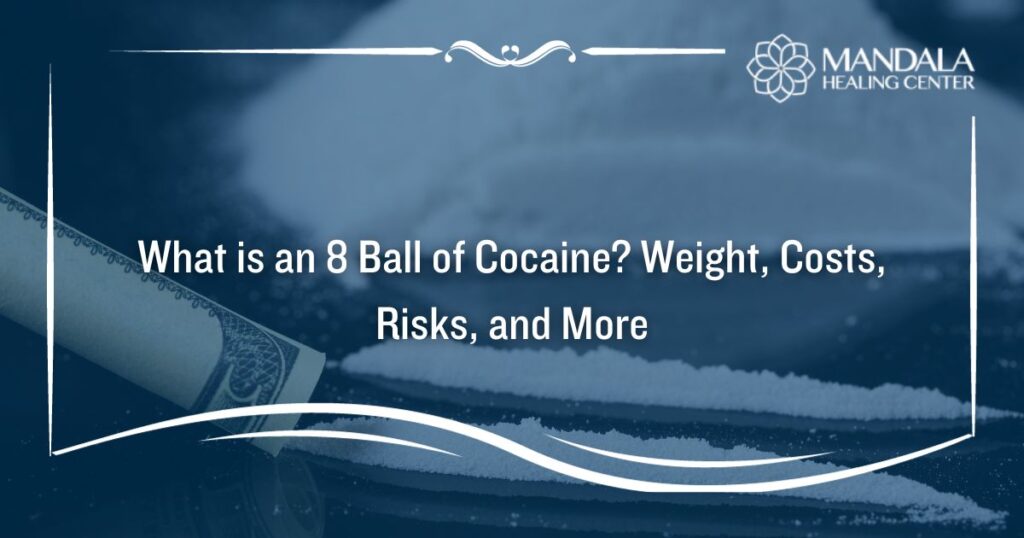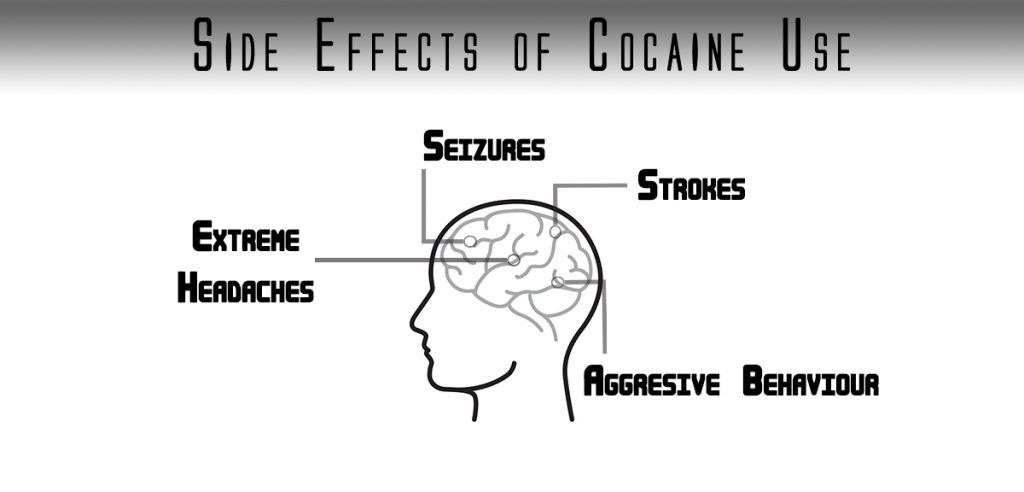Many have heard rumors about cocaine being a magical weight loss solution. Embarking on an exploration of the complex interplay between cocaine use and weight loss, this article dives deep into the scientific aspects, medical research, and the tangible effects on the human body. From appetite suppression to changes in mental health, we’ll unravel the mysteries behind the question, “Does cocaine make you lose weight?” and provide valuable insights for a well-informed understanding.
Understanding Cocaine
Cocaine, derived from the coca plant, has a long history of use, often associated with its stimulant properties. It’s crucial to understand what cocaine is and its historical context to grasp its potential impact on weight.

The Science Behind Cocaine’s Weight Loss Effect
Metabolic Changes Induced by Cocaine
Understanding Does Cocaine Make You Lose Weight involves delving into the intricate world of metabolic alterations. Cocaine has been shown to stimulate the central nervous system, leading to increased metabolism. This heightened metabolic rate can result in the accelerated breakdown of fats and carbohydrates, potentially contributing to weight loss.
Appetite Suppression Mechanisms Triggered by Cocaine
Unraveling the science behind Does Cocaine Make You Lose Weight requires a closer look at its influence on appetite. Cocaine, as a powerful stimulant, can modulate neurotransmitters associated with hunger and satiety. By affecting these neural pathways, cocaine can suppress appetite, leading to reduced caloric intake and, consequently, weight loss.
Cocaine’s Connection to Appetite and Endurance
Appetite Modulation: The Cocaine Conundrum
Exploring the myth of cocaine-induced weight loss involves dissecting its alleged influence on appetite. Cocaine, acting as a potent stimulant, interacts with neurotransmitters linked to hunger regulation. This interaction can result in a notable suppression of appetite, leading individuals to consume fewer calories and potentially contributing to weight loss.
Endurance Enhancement or False Promises?
Before delving into the question of whether cocaine makes you lose weight, it’s essential to examine its impact on endurance. Some believe that cocaine, known for its stimulant properties, may enhance physical stamina. By stimulating the central nervous system, cocaine can potentially lead to increased endurance levels, influencing the overall activity and energy expenditure of individuals. Understanding this aspect is crucial in unraveling the complexities of the cocaine-weight loss myth.
Medical Research References for Weight Loss with Cocaine
Scientific Inquiry: Cocaine and Weight Loss Research Overview
Embarking on a thorough exploration, we’ll navigate through the extensive body of scientific research delving into the connection between cocaine use and weight loss. By scrutinizing reputable studies, we aim to provide a comprehensive understanding of the complexities surrounding this controversial relationship.
Unveiling Research Findings: Cocaine’s Impact on Body Weight
Within the realm of medical research, we’ll specifically focus on unveiling the findings that shed light on the intricate dynamics between cocaine use and alterations in body weight. Through a critical examination of these studies, we aim to offer insights into the nuanced relationship, considering both short-term effects and potential long-term consequences.
Cocaine’s Impact on Physical Health
Immediate Health Concerns: A Closer Look
Cardiovascular Stress:
Research indicates that short-term cocaine use places significant stress on the cardiovascular system. Elevated heart rate, heightened blood pressure, and increased risk of cardiac events are among the immediate concerns that demand attention.
Temperature Regulation Issues:
Cocaine’s stimulant properties can disrupt the body’s ability to regulate temperature. Instances of hyperthermia, where the body overheats, are potential short-term consequences that underscore the need for understanding the physiological impact.

Enduring Health Risks: Exploring the Long-Term Landscape
Cardiovascular Complications:
Prolonged cocaine use has been linked to serious cardiovascular complications. Chronic hypertension, increased risk of heart attacks, and damage to blood vessels are among the long-term risks that pose significant threats to physical well-being.
Organ System Impacts:
Cocaine’s influence extends to various organ systems, with potential adverse effects on the liver, kidneys, and respiratory system. Understanding these long-term risks is crucial for comprehending the holistic impact on physical health.
Psychological Toll:
While often associated with weight loss, the psychological toll of cocaine use, including addiction and mental health challenges, can have enduring effects on physical well-being. Recognizing the interconnectedness of mental and physical health is vital for a comprehensive understanding of the long-term risks associated with cocaine.
Cocaine’s Impact on Mental Health
Psychological Consequences: An In-Depth Exploration
Addiction and Dependency:
Cocaine use is closely associated with a high risk of addiction. This subsection delves into the psychological mechanisms that contribute to dependency, exploring how the drug’s effects on the brain’s reward system can lead to a cycle of compulsive use.
Mental Health Challenges:
Cocaine use has been linked to an array of mental health challenges. From heightened anxiety and paranoia to mood swings and cognitive impairments, we examine the broader psychological toll that can accompany regular or excessive consumption.

Interconnected Health Dynamics: Mental and Physical Symbiosis
Impact on Cognitive Function:
Cocaine’s influence on mental health extends to cognitive function. Exploring the potential impairments in memory, attention, and decision-making helps paint a comprehensive picture of the substance’s impact on the mind.
Seeking Professional Guidance:
Recognizing the gravity of mental health implications, this section emphasizes the importance of seeking professional help. From counseling to rehabilitation programs, understanding the available support systems becomes crucial for those navigating the complex terrain of cocaine’s impact on mental well-being.
Myths and Realities
Myth vs. Reality: Dispelling Common Assumptions
Weight Loss Guarantees:
Clarifying the misconception that cocaine guarantees effective weight loss. This subsection explores the reality behind such claims, emphasizing the dangers and limitations of relying on the substance for weight management.
Health Elixir Fallacy:
Addressing the misguided belief that cocaine holds health benefits beyond weight loss. Unraveling the reality exposes the fallacy of perceiving this illicit substance as a viable elixir for physical well-being, highlighting the potential risks instead.
Consequences Unveiled: Exploring True Ramifications**
Health Risks Acknowledged:
Contrasting common myths that downplay the risks, this subsection acknowledges the genuine health implications associated with cocaine use. From cardiovascular concerns to mental health challenges, the reality is presented starkly for readers to grasp.
Legal and Social Consequences:
Dispelling the myth that cocaine use is without legal repercussions, this part delves into the reality of legal and social consequences. Understanding the potential fallout from engaging with this substance is crucial for fostering responsible decision-making.

The Dark Side of Cocaine Use
Hidden Risks Exposed: Unveiling Cocaine’s Threats
Cardiovascular Menace:
Addressing the significant threat to cardiovascular health posed by cocaine use. This subsection delves into the heightened risk of heart attacks, hypertension, and vascular complications, emphasizing the perilous impact on the heart and circulatory system.
Psychological Turmoil:
Exploring the psychological tumult induced by cocaine, this part exposes the dark side of mental health consequences. From anxiety and paranoia to the risk of addiction, readers gain insight into the profound toll that this substance can take on the mind.
The Unseen Dangers of Cocaine for Weight Management
Focusing specifically on the implications of using cocaine for weight loss, this segment highlights the unseen dangers that lurk beneath the surface. By addressing the potential consequences, we aim to underscore the high cost associated with utilizing this substance as a tool for weight management.
Physiological Toll on Weight Loss:
Examining the physical toll that cocaine inflicts on the body when employed for weight loss purposes. This subsection navigates through the risks of fluid imbalances, nutritional deficiencies, and the unsustainable nature of weight loss achieved through cocaine, revealing the hidden dangers that accompany such practices.
Legal Implications
Legal Accountability: A Closer Look at Consequences
Possession and Trafficking Penalties:
This subsection delves into the legal penalties related to the possession and trafficking of cocaine. Understanding the severity of these consequences encourages individuals to make informed decisions and steer clear of engaging in illicit activities.
Repercussions on Record:
Exploring how involvement with cocaine can leave a lasting mark on one’s legal record. By emphasizing the significance of a clean record for future opportunities, this part underscores the importance of responsible choices to avoid enduring legal repercussions.
Informed Decision-Making: The Crucial Role of Awareness
Highlighting the pivotal role of awareness in making informed and responsible choices, this segment underscores the importance of understanding the legal landscape surrounding cocaine use. By providing readers with a brief yet comprehensive overview, individuals are empowered to make decisions that prioritize legal accountability and personal well-being.
Frequently Asked Questions
- Is cocaine a safe method for weight loss?
- Addressing the safety concerns associated with using cocaine for weight loss.
- Can cocaine use lead to addiction?
- Discussing the potential for addiction and its consequences.
- Are there any medical benefits to using cocaine for weight loss?
- Examining the lack of medical benefits and potential health risks.
- How does cocaine impact mental health?
- Delving into the psychological effects of cocaine use.
- What are the alternatives to using cocaine for weight loss?
- Exploring safer and healthier alternatives for achieving weight loss goals.
- Can the use of cocaine genuinely lead to weight loss?
- “Exploring whether cocaine makes you lose weight involves considering various factors, including its impact on metabolism and appetite.”
- Exploring safer and healthier alternatives for achieving weight loss goals.
